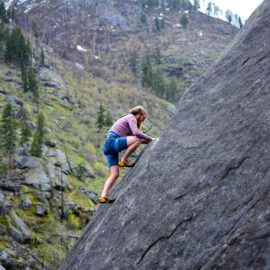

This article is an excerpt from the Shortform book guide to "Focus" by Daniel Goleman. Shortform has the world's best summaries and analyses of books you should be reading.
Like this article? Sign up for a free trial here.
Are you often distracted? Do you ever suffer from attention fatigue?
Just as your body needs time to rest and recover from strenuous physical exertion, your attention needs restoration after it becomes fatigued. In Focus, Daniel Goleman provides advice on how to get your focus back.
Keep reading to learn how Goleman’s recommendations can help you get back on track.
How to Get Your Focus Back
To learn how to get your focus back, says Goleman, you must first distinguish between top-down processing and bottom-up processing. Switching from effortful top-down activities to restful bottom-up activities is the key to restoring your attention. The operative word here is restful. Not all bottom-up activities refresh our attention, especially overstimulating ones mediated by technology, like scrolling mindlessly through social media. The author recommends that we unplug from our screens often and engage our attention in one of two ways—in restful states of open awareness or in states of relaxed, focused attention.
(Shortform note: Goleman’s recommendation to switch from top-down to bottom-up activities is confusing because, at the same time, he advises that some top-down activities are also restful, as long as they involve a relaxed state of focus. Reading between the lines, it is not that top-down activities tax your attention and bottom-up activities restore it, rather, the restorative nature of an activity largely depends on your personality, preferences, and state of mind while you’re doing them. It is a matter of how you do them, your intention, and how the activity makes you feel. For example, if you are extroverted, socializing with friends may restore your attention, while for introverted people, socializing will further drain their energy.)
Immersing yourself in nature, even for a short time, is a powerful and simple way to enter states of restful open awareness. Researchers have found spending time in natural environments restores our attention by initiating bottom-up attention in an environment free from an overwhelming amount of distractions. In this environment, we can allow our attention to wander in a relaxed way that replenishes the strength of top-down, focused attention.
(Shortform note: Research not only supports nature’s restorative properties for your attention but there is also extensive scientific evidence that nature is restorative and healing for your physical body and your emotional well-being, too. For example, Shinrin-yoku, or forest bathing, is a Japanese form of nature-based therapy that has been shown to have powerful positive effects on human physiology.)
To restore your attention, Goleman also recommends getting fully lost in pleasurable activities, as these focus your attention in a relaxed manner and engage all of your senses. Cooking, eating a home-cooked meal, martial arts, and dancing could be such activities for you.
(Shortform note: One thing that these sorts of relaxed, focused activities have in common, but Goleman doesn’t explicitly name, is that they all engage your body and senses in a mindful way. Activities that are physical like running, or sensorial, like cooking a meal, can be done with your attention focused on other things, like worries about the future. The key is that you stay in the present moment and adopt a mindful awareness while you do these activities, which further supports the point that the restorative properties of activities depend primarily on how you do them and the intention behind them.)

———End of Preview———
Like what you just read? Read the rest of the world's best book summary and analysis of Daniel Goleman's "Focus" at Shortform.
Here's what you'll find in our full Focus summary:
- How to understand, strengthen, and use your attention to lead a more fulfilling life
- The three directions you can aim your attention: inward, toward others, and outward
- How spending time in nature restores your attention






